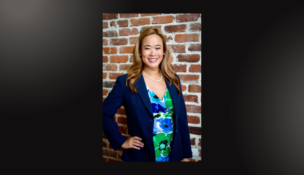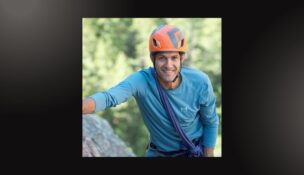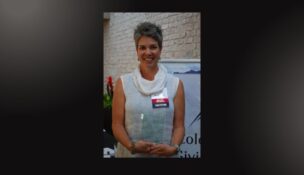How Bart Lorang aims to make FullContact a global power
The Denver-based company tackles the world’s contact information problem
Gigi Sukin //November 9, 2016//


How Bart Lorang aims to make FullContact a global power
The Denver-based company tackles the world’s contact information problem
Gigi Sukin //November 9, 2016//

When I arrive at FullContact’s downtown Denver headquarters, CEO and co-founder Bart Lorang is discussing an employee’s new married last name, trying to grasp a goofy moniker he spotted on Facebook belonging to her new spouse.
It’s a perfect example of a contact problem, the kind he and his company spend their days solving. Founded in 2010, FullContact launched its first contact management solution to 100 beta users, beginning a journey that would lead the company to tackle the challenge of fixing the world’s contact information problem. We sat down to talk with Lorang about his small-town upbringing, his proclivity toward computers, emotional intelligence and the potential for an IPO.
CB: I understand you’re from Bozeman, Mont. How did that impact your childhood?
BL: I was born in Bozeman, grew up in the outskirts, and so went to a very small school and got involved in the traditional things, sports and the outdoors. But I also got into computers at an early age. My dad and mom gave me a computer, a Commodore 64, when I was very young and put it in my bedroom, and I taught myself how to program using BASIC.
How’d you take that to the next level?
After 8th grade, we moved to Denver. I went to Heritage High School in Littleton and the freshman class was 500 people … so that was a culture shock in retrospect.
But I found my groove both with sports and computers. I found some kids who were into it, too, and we created a business called PC Consultants. The internet was just starting in earnest; it was 1994-95, and so we started a web design company. We would install Windows ’95, we would replace your memory. … There were three of us charging $20-$24 an hour to help people.
After some time, one of my co-founders, his dad actually ran a software company called Dimension Technology Solutions, and he essentially acquired us.
Acquisition at age 16 ? That sounds impressive.
Well, basically we got jobs. It wasn’t a giant payday.
So I did that and then I decided to go to CU Boulder and continued to help grow the business at DTS. They made me a full equity partner in the firm while I was in college – sort of a retention strategy, I guess.
You eventually decided to get your MBA. Why was that necessary given your business background?
I sold my shares in DTS in 2009 and left the company. I’d spent 13 years there. I had learned all these different things in business, self-taught accounting, finance. I was curious about going to grad school, though.
And was it life changing?
Yeah, in many ways, but not the ways you’d think.
You met your wife in grad school, right?
That’s right.
And she, in part, inspired FullContact?
Yes, I got a peek at her Outlook contacts, and they were amazing. She had every photo, every field filled out; she had spouses’ names; she had anniversary dates, birthdays, work addresses, fax numbers, everything.
She only had a few hundred contacts, and I had like 5,000, being an entrepreneur and highly extroverted. I always struggled with my contacts personally in my business ventures, and my clients struggled with contact data. It was always a mess, in different systems, CRM, billing, accounting, spreadsheets. So I thought, why doesn’t someone focus on this thing? I thought about it deeply and I realized the depth of the problem. The difficulty was extraordinary. But it was attractive to me intellectually and mathematically. So I started up the company.
Describe the company’s progression.
We actually got roped into Techstars Boulder in 2011, a little over a year in. But I literally got turned down for investments 126 times. So I sucked at that. Everybody was saying this is just a feature; it’s not a product or a business. I was targeting the wrong investors.
But finally, after more than 100 pitches, you got some money and were ready to take off?
We settled on Denver, because Denver didn’t really have a good startup scene. It was 2011, and in Boulder I would walk down Pearl Street and literally run into eight, nine, 10 people I knew, including half a dozen CEOs, just serendipitously. In Denver, I would walk around and nobody knew each other. There was no common place to hang out. So we said let’s go be active in the startup scene in Denver and try to build that up.
How did the business develop?
We had launched our product during Techstars, our API product. We started to sell and scale that and started working on some new capabilities. And around June of the next year, Foundry Group and Brad Feld gave us a $7 million finance round.
With some of your hyped HR policies – including the request for negative references from job candidates and ‘paid paid-time off’ – it seems like you’ve got pretty high emotional intelligence, which isn’t always a trait associated with computer programmers and engineers.
It’s something I’ve had to consciously develop. I was a totally emotionally stunted moron from my teen years through my 20s. My leadership style was very aggressive. I started to learn about leadership intelligence in grad school … so I’ve become a student of it. You have to be awesome with yourself. Now I meditate daily. I like to think I’m a learning machine. I can learn sales; I can learn marketing; I can learn emotional intelligence.
Any issues with having flashy perks?
We’re fixing people’s lives and fixing people’s relationships. There’s an intrinsic reason everyone’s here. We can have all the perks and cool, fun culture stuff, all the beer and free popcorn. At the same time, if you don’t believe in the mission, you’ll burn out really quickly.
FullContact has received $50 million in investments to date and had a number of acquisitions. What’s your 20-year plan?
We’ve acquired six companies, our first in 2013 and three this year. Our goal is to be the world’s contact management platform. The world is a big place and there’s a lot of interesting geographies, a lot of international problems to solve. Acquisitions are a great way to accelerate that. Ultimately my goal is to make contact information disappear, and that might sound strange, but it shouldn’t be a friction point. All the data and context you have about me should be present and available to whatever user interfaces we’re going to have in 10 years. It’s going to be embedded in our intelligence.
So I foresee future acquisitions. We like small rollups, small teams, great products that accelerate our road map.
What’s the likelihood of FullContact going public?
That’s Plan A. We believe we’re strong as an independent company. We’ve got to get to a certain revenue threshold, but that’s the plan.
When you talk about friction points with your technology – any thoughts on how technology is embedded in our lives, philosophically?
Here’s the question: Are we machine-enhanced humans or human-enhanced machines? And, does it matter?
You’ve got a venture fund that you got serious about in 2010. Why was that important?
We wanted to do something to help entrepreneurs and be on their side of the table as opposed to across the table; be a true partner, recognizing how difficult it is to have built something. We’re early on – $50,000 to $100,000 early rounds. It’s good mental gymnastics. So we invest in things that we believe will exist in a big way in the year 2025 to 2029.
What would you do if you weren’t an entrepreneur?
I would be a sports journalist.

























